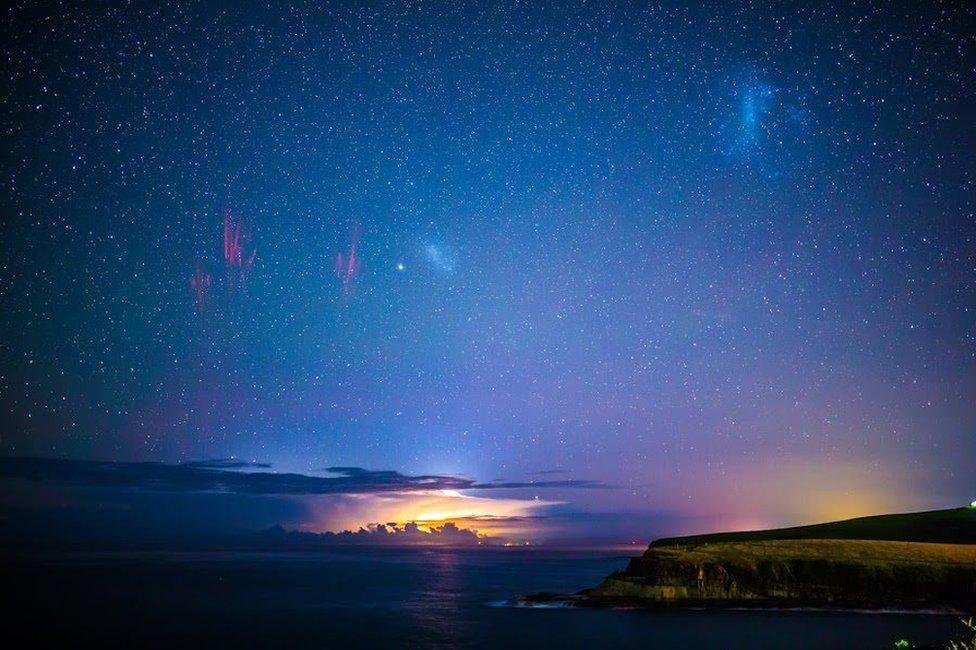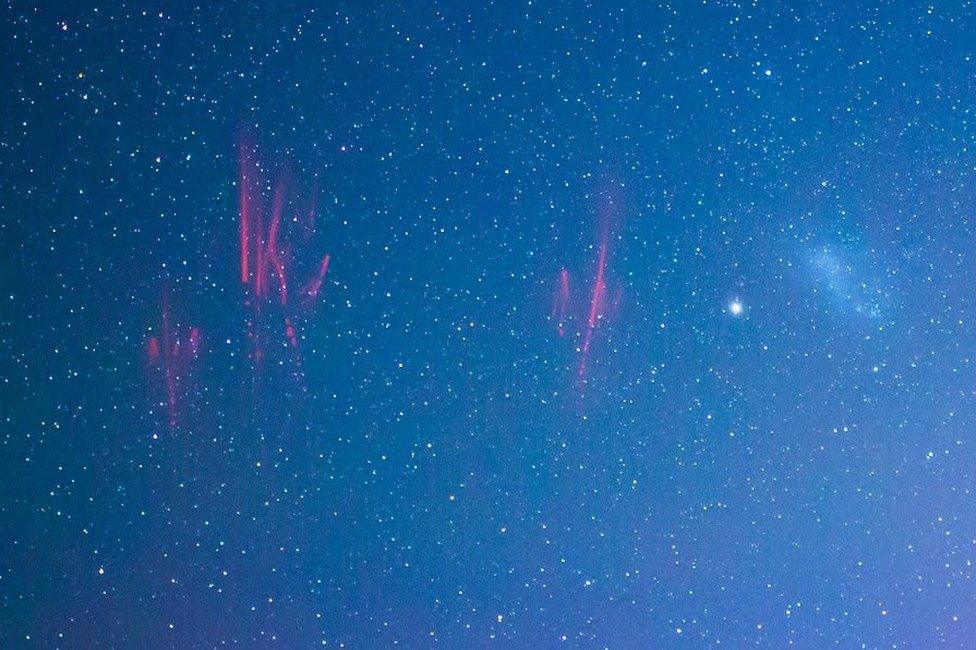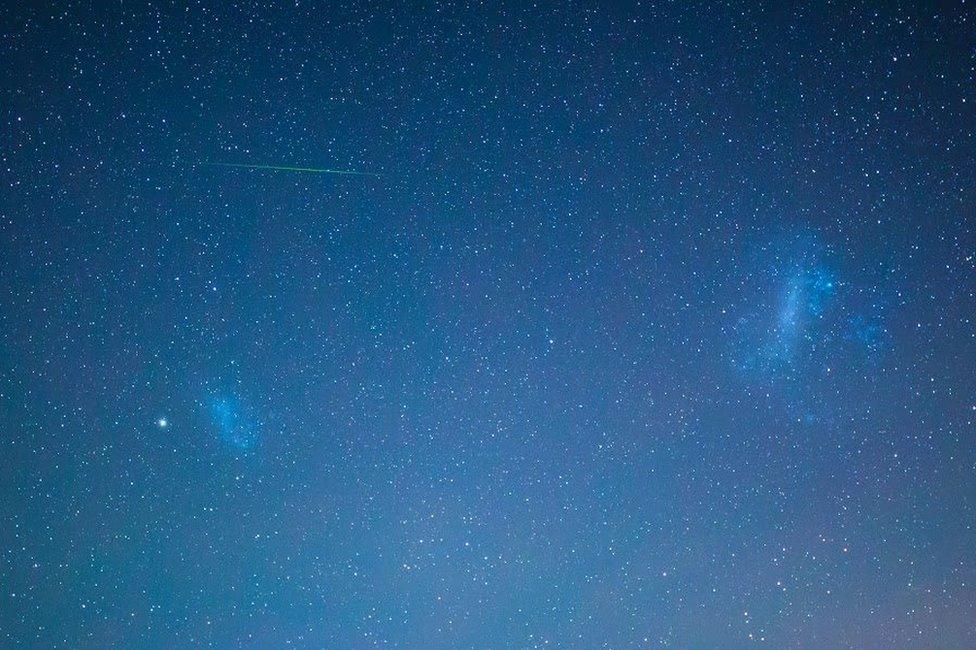Rare 'sprites' photographed beside Southern Lights
- Published

A panoramic image showing sprites next to the Aurora Australis
An Australian photographer has captured images of rare sprites, a meteor shower and the Southern Lights - all in a single night.
Sprites - flashes of electricity - can reach the Earth's upper atmosphere, often displaying as a brilliant light.
"It's an intense electrical discharge out of the very top of a thunderstorm," photographer David Finlay told the BBC.
He took photos of the "space lightning" at Kiama, 120km (75 miles) south of Sydney.

The name "sprite" is borrowed from William Shakespeare's A Midsummer Night's Dream
"I've been looking for them for about 15 years," he said. "I didn't know if you could see them in New South Wales."
Mr Finlay was trying to shoot the Lyrid meteor shower and Aurora Australis at the same time, focusing his camera on a thunderstorm about 120km offshore.
You might also like:
He later realised he had shot a "trifecta" - a sort of triple whammy made possible by ideal weather conditions for time-lapse photography.
"Usually when you get a storm it messes up all the air around it," he said. "The sky was virtually crystal clear."
It was the first time Mr Finlay has seen images of sprites in Australia using an off-the-shelf DSLR camera.

Mr Finlay also captured a meteor shower
"One of my friends said all you need now is a Tasmanian tiger to wander along the headland and you've got just about everything rare that you could possibly photograph in one night," he said.
Dr Brett Carter, a physicist from RMIT University, said sprites reach the ionosphere - a region of the Earth's upper atmosphere.
"Historically only pilots have seen sprites and there is a very good reason for that," he said.
"They are so faint that it is very difficult to see them with the naked eye."
He said photographers can start to have an impact on the scientific understanding of the near-Earth space environment.
"We don't have a good way of measuring these things all over the world routinely," he said.
"There's actually a large movement in our field towards citizen science. That includes Aurora as well."
After ticking off one item from his photographic bucket list, Mr Finlay has set his sights on an Australian icon.
"I would really love to film the Geminids meteor shower from Uluru," he said.
Reporting by the BBC's Greg Dunlop